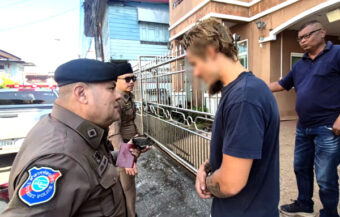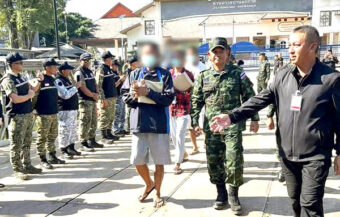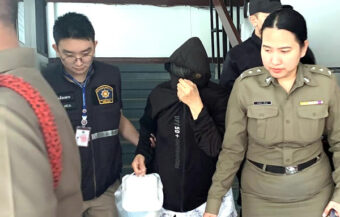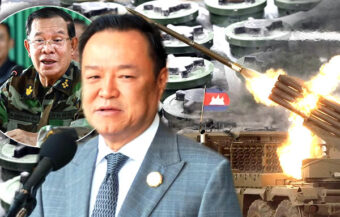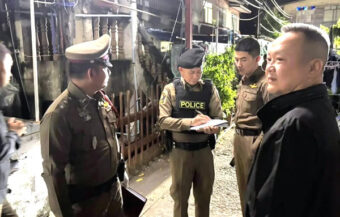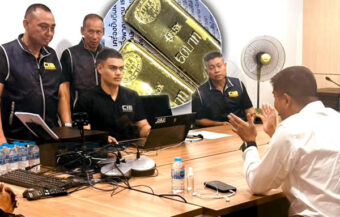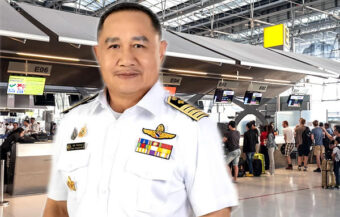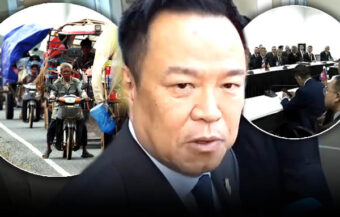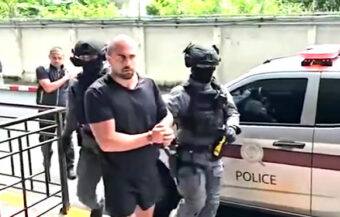Pheu Thai grows confident Prime Minister Paetongtarn Shinawatra can survive the Constitutional Court challenge over her Hun Sen call, insisting it aimed to protect Thais, preserve peace and serve national interests as the August 29 verdict approaches.
Ruling party leaders in Parliament are growing confident Prime Minister Paetongtarn Shinawatra can survive the Constitutional Court challenge from Senate members. She told the court her June 15 call with Cambodian leader Hun Sen was meant to preserve peace and prevent border clashes. She insists her comments on 2nd Army commander Lieutenant General Boonsin Padklang were purely a diplomatic tactic amid a tense standoff. The PM may take the stand on Thursday to present her defence. Observers warn that if she is removed, it could sharply restrict future ministerial communications—including private calls like her controversial conversation with Hun Sen—potentially reshaping Thailand’s executive diplomacy.
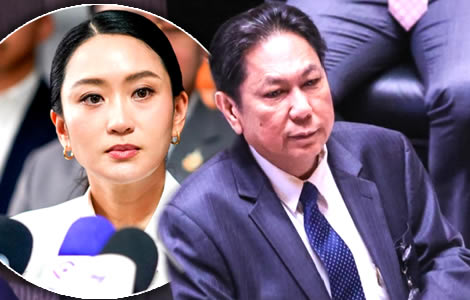
The Pheu Thai Party has expressed growing confidence that suspended Prime Minister Paetongtarn Shinawatra may survive her Constitutional Court case. The court is set to deliver its verdict on August 29.
The Prime Minister’s defence emphasises that her actions were neither unethical nor illegal. She has argued that her phone call to Cambodian leader Hun Sen aimed to prevent war or hostilities. Consequently, Pheu Thai officials argue that her intent was national protection rather than personal gain.
However, critics, especially arch-conservatives, condemned her apparent criticism of the 2nd Army commander. Nevertheless, Ms. Paetongtarn has maintained that her comments were diplomatic in nature. She also stated that Lieutenant General Boonsin Padklang did not take offence. Therefore, she argues her statements were intended to serve Thailand’s interests.
Court ruling against PM could limit future ministerial communications and redefine executive diplomacy
If the court rules against her, tighter restrictions could limit how ministers communicate with third parties. This could fundamentally change Thailand’s executive diplomacy. Consequently, the verdict is seen as a test case for ministerial discretion and international engagement.
Meanwhile, constitutional experts have largely predicted that Ms. Paetongtarn could lose and be removed. Nevertheless, Pheu Thai Party officials remain outwardly confident. The Prime Minister is due in court on Thursday, August 21, alongside Chatchai Bangchuad, Secretary-General of the National Security Council (NSC).
In preparation, Ms. Paetongtarn has requested four additional witnesses to testify about her diplomatic intentions. Accordingly, the party insists that these testimonies may clarify her rationale and reduce political tension.
Conservative activists, however, continue to pressure the Prime Minister to resign, regardless of the court’s decision. This includes calls from groups such as Ruam Palang Phaendin, who plan to hold a press conference on August 21 in front of Parliament. They aim to raise concerns about border disputes, as well as land and maritime MOUs with Cambodia, signed when Ms. Paetongtarn’s father, Thaksin Shinawatra, was in power.
Pheu Thai emphasises Prime Minister’s call to Cambodian leader was aimed at protection, not personal gain
On August 18, Pheu Thai MP Wisut Chainarun, chairman of the coalition coordination committee, addressed Parliament. He said no party members were stressed by the upcoming verdict. He emphasised that the Prime Minister acted to protect tens of thousands of Thais. Therefore, he argued, her intentions should be seen as protective rather than controversial.
He explained that delaying action during her call may have prevented immediate conflict. Additionally, he noted that the Prime Minister’s words were designed to avoid harassment or economic harm to Thai residents in Cambodia. Consequently, the party believes justice will prevail.
Wisut also insisted there is no need for a backup Prime Minister. He added that Chaikasem Nitisiri, the Pheu Thai Party’s prime ministerial candidate, remains ready if required. Therefore, the party feels secure regardless of the court’s ruling.
Furthermore, Wisut stressed that the government’s focus remains on national economic recovery and public welfare. He said the party is prioritising agricultural support, including payments for dry-season rice crops. Therefore, the party argues, political disruption cannot override urgent economic needs.
Coalition majority is stable, discussions on replacing the Prime Minister should wait until after the next election
He also addressed concerns about a potential change in government. According to Wisut, the slim coalition majority does not require a reshuffle. Consequently, he stated that discussions about replacing the Prime Minister should wait until after the next election.
Despite polls showing potential voter dissatisfaction, Wisut insisted that Thailand has maintained sovereignty and national unity. He argued that public trust, along with international and military confidence, remains strong. Furthermore, he criticised media outlets that, in his view, misrepresent government intentions.
Dr. Prommin Lertsuridej, the Prime Minister’s Secretary-General, acknowledged a slight possibility that the Prime Minister might step down voluntarily. However, he emphasised that no official decision had been made. Meanwhile, Prime Minister Paetongtarn Shinawatra has remained noncommittal about attending the Constitutional Court personally, noting only that August 21 is her birthday.
Political observers note that the “audio clip case” has become a central point in Thailand’s ongoing power struggle. Ruam Palang Phaendin and other opposition groups have amplified public pressure on the government. They argue that border disputes and Memorandums of Understanding Nos. 43 and 44 could impact sovereignty. Consequently, the upcoming August 21 hearing will be closely watched.
Pheu Thai warns political uncertainty from the audio clip case threatens economic and political stability
Additionally, Pheu Thai Party supporters argue that the case distracts from critical national issues, including public safety, economic stability and agriculture. They maintain that political uncertainty caused by the case is injurious to the country. Meanwhile, conservative opposition activists argue the opposite, claiming ethical standards require the Prime Minister’s removal.
Jatuporn Prompan, leader of the People’s Alliance for Democracy, commented on August 16 via Facebook Live. He said he would wait to see if Ms. Paetongtarn attends the Constitutional Court hearing. Nevertheless, he added that resignation could prevent further political damage.
The Prime Minister’s team argues that the phone call with Hun Sen was intended as a tactical delay, not an ethical violation. Therefore, they insist the “audio clip” should be seen in context, as a measure to protect Thai lives. Additionally, Pheu Thai Party officials point to their delegation of military authority and border security oversight to reinforce their defence.
Wisut further emphasised that if no wrongdoing occurred, there is nothing to fear. He urged opponents not to stir unrest or chaos. He also highlighted that national unity is essential for public confidence and international credibility. Consequently, he stressed that the government’s measured response has strengthened sovereignty rather than diminished it.
August 21 court hearing will test the Prime Minister’s diplomatic defence and clarify Hun Sen call
On August 21, two witnesses are scheduled to testify at the court hearing: Prime Minister Paetongtarn herself and Chatchai Bangchuad. Their testimonies are expected to clarify the diplomatic rationale behind the controversial call. Additionally, the Ruam Palang Phaendin group plans to attend and submit a formal request.
In parallel, the case is closely tied to former Prime Minister Thaksin Shinawatra’s legal situation. Despite returning to Thailand, Thaksin has not properly served his prison sentence, say his critics. Public officials, however, insist that he has.
The Supreme Court has scheduled a hearing for September 9 to give judgment, having previously examined the matter. It certainly heightens the political stakes. Consequently, the opposition frames the current case as part of a broader “Thaksin regime” narrative.
Meanwhile, public attention remains focused on both the August 21 hearing and the August 29 verdict. Analysts note that political pressure from opposition groups could influence public perception, even if the Constitutional Court rules in favour of the Prime Minister. Additionally, the upcoming parliamentary discussion on border MOUs further complicates the political environment.
Pheu Thai stresses unity and public interest over rising partisan politics in a tense political climate
Wisut and the Pheu Thai Party insist that political unity and the public interest must take precedence over partisan manoeuvring. They argue that the Prime Minister’s continued leadership is critical for economic stability, border security and agricultural planning. Consequently, the party asserts that her actions were justified and necessary.
Observers note that the situation represents a turning point in Thai politics. The “audio clip” case has become a symbol of broader tensions between executive discretion and perceived ethical boundaries. Furthermore, it tests the Constitutional Court’s ability to balance legal standards with political realities.
Despite predictions of impeachment by many constitutional experts, Pheu Thai officials remain confident. They argue that the Prime Minister’s intent, combined with her diplomatic caution, strengthens her case. Meanwhile, opposition activists continue to demand her resignation, creating a volatile political landscape.
Prime Minister Paetongtarn to call five expert witnesses on August 21st to support her Hun Sen audio clip defence
Certainly, Thailand faces a decisive few weeks in politics. The Constitutional Court hearings on August 21, followed by the verdict on August 29, will determine the political future of Prime Minister Paetongtarn Shinawatra.
The August 29th judgment will test whether diplomacy and protective intent can withstand political and ethical scrutiny. Ultimately, the case highlights Thailand’s uneasy political balance, the power of opposition groups, the enduring influence of conservative forces, as well as a constitution that significantly reduces and limits the scope and capacity of national politicians.
Join the Thai News forum, follow Thai Examiner on Facebook here
Receive all our stories as they come out on Telegram here
Follow Thai Examiner here
Further reading:
Senate Committee Chair tells government to send Trump’s men packing and accept the 36% tariff rate

